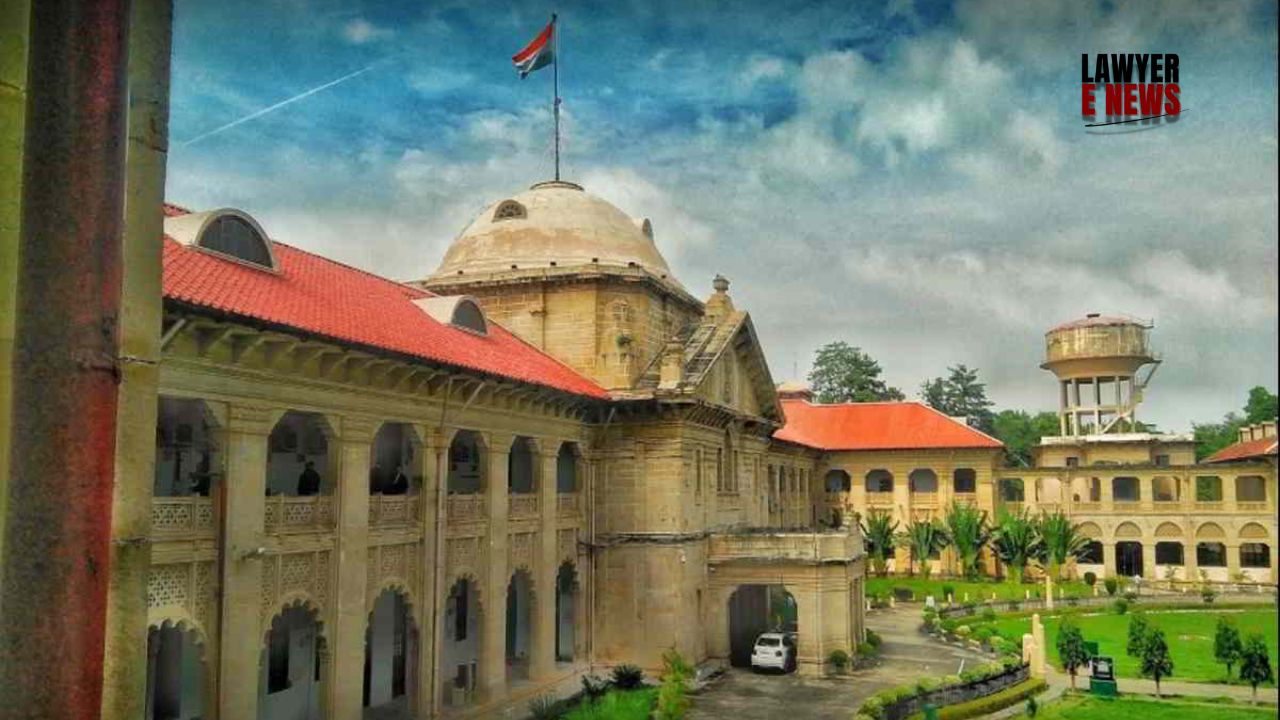-
by sayum
14 February 2026 2:22 PM



Allahabad High Court overturned a Family Court’s decision and dissolved the marriage between the appellant-husband and respondent-wife, citing cruelty and desertion. The bench, comprising Justices Rajan Roy and Om Prakash Shukla, emphasized that a prolonged separation exceeding a decade amounts to mental cruelty and desertion, justifying dissolution of marriage under Section 13 of the Hindu Marriage Act, 1955.
The appellant-husband filed for divorce in 2019 on the grounds of cruelty, desertion, and mental disorder under Section 13(1)(iii) of the Hindu Marriage Act, alleging that the respondent-wife suffered from schizophrenia. He claimed the mental illness was concealed prior to the marriage and rendered her incapable of marital cohabitation. Additionally, the wife had allegedly deserted the matrimonial home shortly after marriage and refused to return.
The Family Court dismissed the petition, ruling that the appellant failed to substantiate the allegations of mental disorder and cruelty. Aggrieved, the husband appealed to the High Court.
The High Court, relying on precedents such as Rakesh Raman v. Kavita (2023 SCC OnLine SC 497), held that continuous separation exceeding a decade amounts to mental cruelty, making it impossible for the parties to cohabit. Justice Om Prakash Shukla noted:
"The long period of separation establishes that the matrimonial bond is beyond repair. By refusing to sever the legal tie, the law shows scant regard for the feelings and emotions of the parties, thereby leading to mental cruelty."
The wife’s unwillingness to contest the appeal or reconcile further underscored the breakdown of the marriage.
Citing Debananda Tamuli v. Kakumoni Kataky (2022) 5 SCC 459, the court reiterated that desertion involves willful abandonment without reasonable cause. The wife’s prolonged absence from the matrimonial home, coupled with her lack of effort to reconcile, demonstrated an intent to permanently end cohabitation (animus deserendi).
"The respondent-wife’s failure to contest the appeal or provide plausible reasons for her absence shows her intent to abandon the marital relationship," the court held.
The appellant claimed the respondent suffered from schizophrenia, making cohabitation untenable. However, the court upheld the Family Court’s finding that the appellant failed to prove the severity and impact of the condition. Relying on Kollam Chandra Sekhar v. Kollam Padma Latha (2014) 1 SCC 225, the bench stated:
"Mental disorder must be of such a kind and degree as to make it unreasonable for the petitioner to live with the respondent. Mere existence of schizophrenia, without evidence of its adverse impact on marital life, is insufficient for divorce under Section 13(1)(iii)."
Setting aside the Family Court's judgment, the High Court dissolved the marriage on grounds of cruelty and desertion. The bench clarified that the mental disorder claim was insufficiently substantiated and could not independently justify divorce.
This ruling highlights:
Prolonged separation as a form of mental cruelty under matrimonial law.
The necessity of proving severity and impact of mental disorders for divorce under Section 13(1)(iii).
The principle that desertion requires animus deserendi or a clear intent to abandon marital ties.
Date of Decision: October 24, 2024
